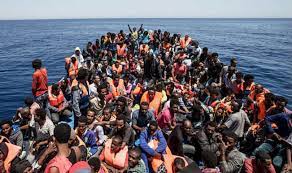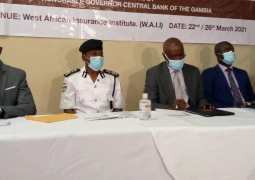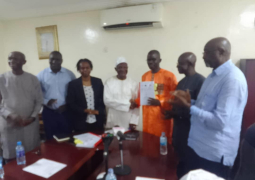
“Our people are out there, lost in the Mediterranean, and nobody knows if they are alive or dead,” he said, describing the tragedy as part of a wider crisis of neglect facing Gambian migrants across North Africa.
“In a single year, more than a thousand Gambian lives can vanish. We are losing the future of this country at sea, in prisons, and at borders. If we do not act, this tragedy will continue,” he further warned.
Sumareh expressed frustration with the Gambian government and immigration authorities, who he believes “are failing to protect citizens” at home and abroad.
“Between August and September, four boats left Gambian shores. Where were the immigration officers? Where was the Navy? Migration control cannot be done from offices; you need community intelligence,” he said.
But he also acknowledged that the lure of migration is deeply rooted in frustration with unemployment and poverty. Parents, he added, often unknowingly enable the journeys by selling their land and property to finance their children’s dangerous voyage.
“A government has a responsibility to protect its citizens wherever they are. But most Gambians abroad feel like they have no representation,” Sumareh said.
In Mauritania, he explained, Gambians face relentless harassment by police officers regardless of their valid residence permits.
“When you are detained, they take your fingerprints and photograph you. That automatically means you have already been deported. But they won’t tell you,” Sumareh revealed.
Victims are then ordered to travel hundreds of kilometers to the Mauritanian-Senegalese border town of Rosso to regularize their status. After braving over a dozen police checkpoints each demanding bribes, they are finally informed they have already been deported and can never return.
“It is deportation disguised as legality, and Gambians are paying the price with their dignity and money,” he stressed.
The activist’s warnings did not stop at Mauritania. In Libya, Gambians keep languishing in prisons for years without legal representation, their families unaware of their whereabouts. In Algeria, police harassment has turned fatal, he said, citing cases of Gambians dying while fleeing police raids, including one who fell from a five-storey building.
“Even when Gambians die abroad, their bodies are often never recovered. Migrants themselves never see them again. That is how invisible Gambian lives have become,” Sumareh lamented.
He revealed that Gambians are not just dying from shipwrecks; they are also being murdered by the very captains entrusted to deliver them to Europe.
“Seventy-two people died on a boat from Senegal last month. They were not natural deaths. They were tied up, tortured and killed by the captains,” he claimed, adding that knives and cutlasses were used to silence migrants deemed ‘troublesome’.
Most captains, he said, are Senegalese, while Gambians often act as agents who recruit passengers from local communities. Several Senegalese captains have already been arrested in Spain following reports filed by survivors.
Sumareh concluded with a plea for urgent government intervention and wider public awareness campaigns.





